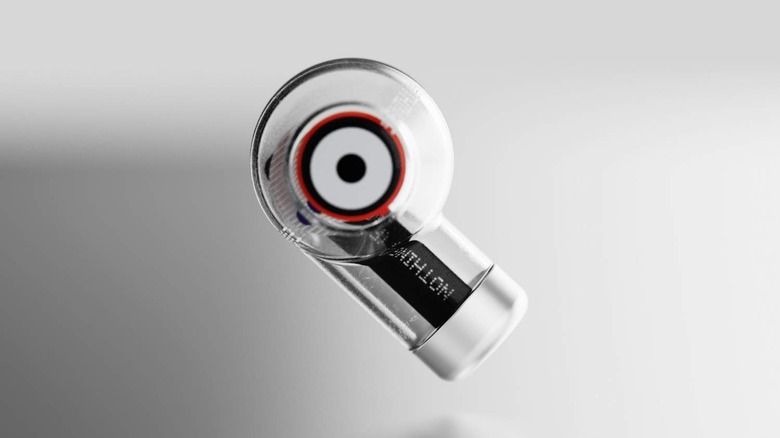Nothing reveals the true wireless earbud concept that epitomizes its brand
Nothing, the startup from former OnePlus chief Carl Pei, has shown off the design concepts for its first products, the true wireless earbuds the company expects to launch this year. Publicly revealed earlier this year, Nothing quickly gained attention with its high-profile backers, its attempts to crowdfund more financing from potential customers, and its acquisition of a familiar – and controversial – name in Android.
In mid-February, Nothing acquired what was left of Essential, the smartphone brand established by former Googler Andy Rubin. Shortly after, the company revealed it was working with Teenage Engineering as a Founding Partner, a Swedish company known more for their synthesizers and handheld gaming machines than for mobile accessories.
That, though, gave us an idea of where Pei saw a design-focused brand going, along with the confirmation that the company planned an ecosystem of headphones and other smart devices. "We envision a future where technology is so advanced and seamlessly integrated into our lives that it feels like nothing, yet is everywhere," Pei said today. "No screens, no dedicated devices, just barely-noticeable technology that empowers us to be more human."
Nothing Concept 1 isn't the true wireless earbuds design that its first product will use over the summer, the company says, but it's being revealed as a way to visually express the Nothing approach. There are three core principles to the company, as Pei explains it. Weightless, effortless, and timeless.

Concept 1 apparently "takes inspiration from a grandmother's tobacco pipe," which Pei argues helps ground it in something familiar. "The designs that are the most appealing to us are ones that consist of shapes that look natural and warm, yet don't easily feel outdated," he suggests. "We've all had that moment where we've interacted with an object and felt that sense of wonder or surprise."
However weight – or its absence – is key, too. Nothing, much like its name suggests, is aiming for as little heft as possible. That includes literal weight, but also necessary branding.
Finally, there's the idea of a product being "effortless" to use. "We want every product interaction, from picking it up to turning it on, to be intuitive, obvious, and natural," Pei explains. "When designing and engineering our products, we believe form must follow function."
Certainly, a lot of this will be familiar if you've ever talked with a designer, particularly in the tech or automotive industry. Rarely do they say they've embraced needless ornamentation, or intentionally made a product or device more complex. In the tech space specifically, trying to rationalize products to suit them to as broad an audience as possible is just good business sense.
Nonetheless, just because many talk about it, doesn't mean every company gets it right. There's also a distinction between functionality and functionality-with-style, particularly where the latter doesn't cling to fashion trends but instead has a distinct timelessness of its own. If Nothing can nail that when it unveils its first products later in the year, it would be off to a good start.
